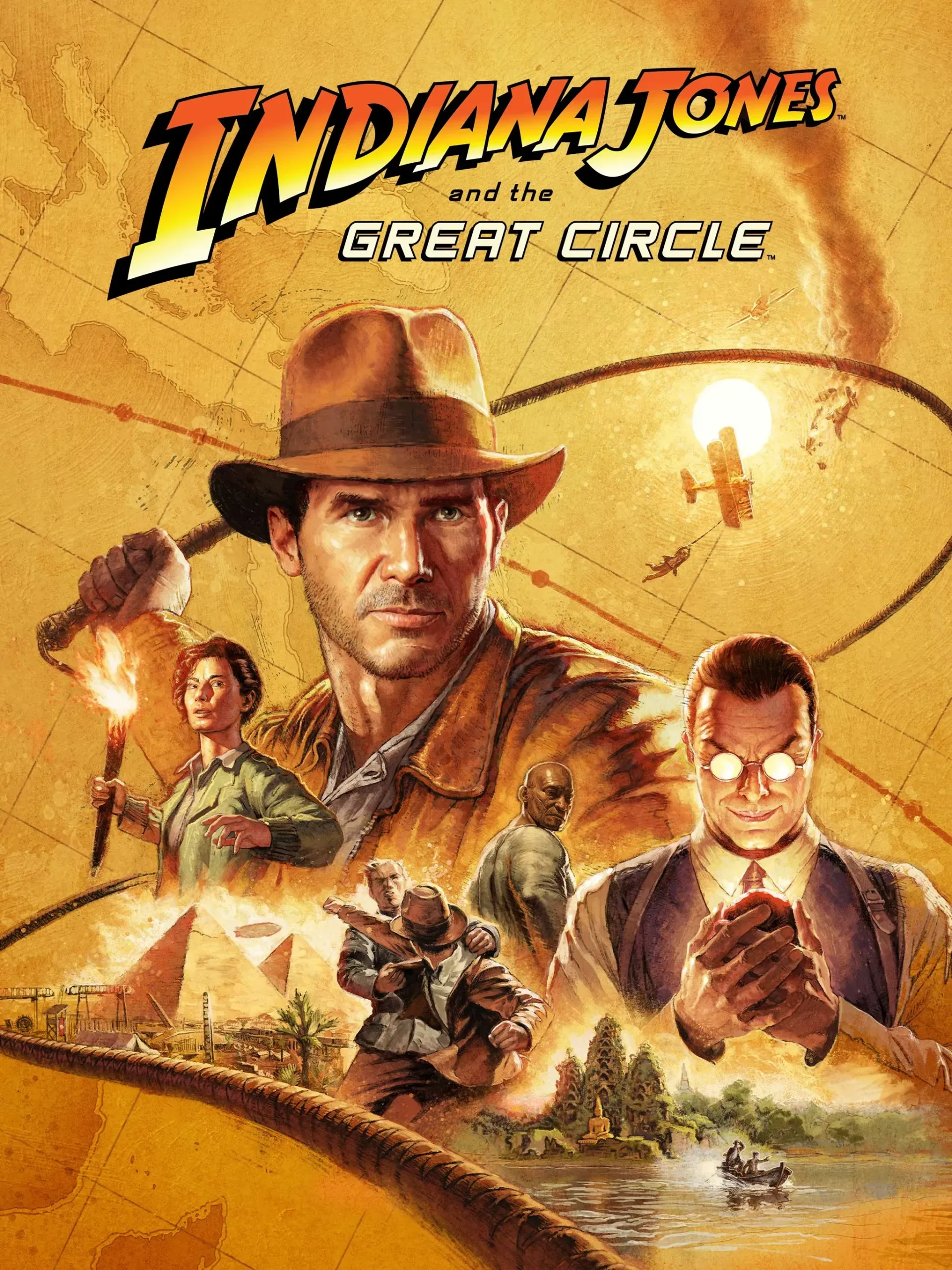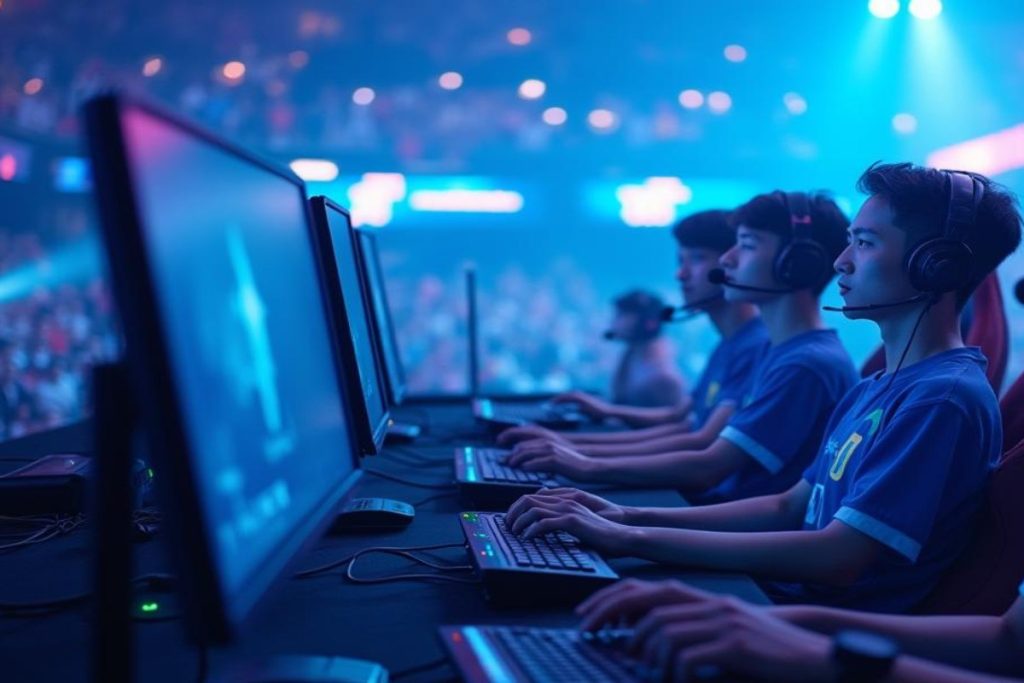In the ever-evolving landscape of the video game industry, **Indiana Jones and the Great Circle** shines as a beacon of creativity and collaboration. As layoffs in gaming management ripple through the sector, this title highlights the critical importance of sustaining dedicated development teams over the years. The institutional knowledge possessed by seasoned developers not only enhances game quality but also fosters innovation and diversity in gameplay. MachineGames, renowned for its storytelling and immersive experiences, showcases how a stable team environment can lead to the creation of memorable gaming experiences. With its thrilling action sequences and engaging narrative, Indiana Jones and the Great Circle exemplifies the best that the gaming industry has to offer, reminding us all of the value of teamwork amidst challenging times.
In recent years, the landscape of interactive entertainment has faced numerous hurdles, yet titles like **Indiana Jones and the Great Circle** continue to demonstrate the power of longtime partnerships in game creation. As industry-wide cutbacks occur, particularly following the surge in player engagement during the pandemic, it’s apparent that fostering expertise and cohesive teams is vital for overcoming adversity. The relationship between project stability and high-quality production is evident in the works of studios that prioritize collaborative development. As we navigate through these turbulent times, recognizing the merit of enduring creative alliances becomes essential for the future of game production. Ultimately, the success of Indiana Jones, alongside similar projects, underscores the narrative that strong teams can thrive and innovate even amidst the trials of the gaming world.
The Importance of Institutional Knowledge in Game Development
In the rapidly evolving video game industry, institutional knowledge plays a pivotal role in the success and longevity of game development teams. This accumulated understanding and experience allow developers to create rich narratives and compelling gameplay that resonate with players. With teams like MachineGames, which have cultivated a shared history over years of collaboration, the benefits of retaining team members become evident. The intricate development of titles such as Indiana Jones and the Great Circle illustrates how longstanding team dynamics can enhance creative output, ensuring every punch and plot twist is meticulously crafted based on a deep understanding of both gameplay mechanics and storytelling.
As the gaming landscape becomes increasingly competitive, studios are often pressured to release titles quickly. However, the lack of institutional knowledge can lead to subpar experiences that fail to capture players’ attention. With layoffs in gaming becoming more common, the threat of losing seasoned team members grows ever more significant. Titles like Baldur’s Gate 3 serve as a reminder of the exceptional outcomes possible when teams effectively harness decades of combined experience. Without prioritizing team retention and the invaluable insights that come with it, developers risk future innovation and the very essence of what makes gaming a transformative medium.
Frequently Asked Questions
What is the significance of institutional knowledge in the development of Indiana Jones and the Great Circle?
Institutional knowledge plays a critical role in the success of Indiana Jones and the Great Circle. With a seasoned team from MachineGames, their accumulated experience fosters innovation and enhances the game’s development. This continuity allows for the seamless blending of gameplay elements, creating rich experiences that resonate with players.
How does the gameplay of Indiana Jones and the Great Circle compare to past MachineGames titles?
Indiana Jones and the Great Circle showcases an evolution of gameplay mechanics first pioneered in titles like The Chronicles of Riddick: Escape from Butcher Bay. While maintaining a focus on immersive first-person adventure, Indiana Jones introduces new combat systems and environmental storytelling that highlight the team’s growth and expertise in game development.
What challenges has the video game industry faced that impact games like Indiana Jones and the Great Circle?
The video game industry is currently experiencing significant challenges, including layoffs and studio closures, which threaten creativity and continuity. These pressures can hinder the development of ambitious projects like Indiana Jones and the Great Circle, as securing experienced teams becomes increasingly difficult in a volatile market.
Can Indiana Jones and the Great Circle set a standard for future games in the gaming industry?
Absolutely! Indiana Jones and the Great Circle has the potential to set a new benchmark in the gaming industry by demonstrating the importance of creative collaboration and long-term team cohesion. By prioritizing the preservation of institutional knowledge, it shows that outstanding games can emerge from teams who work together over extended periods.
What aspects of Indiana Jones and the Great Circle showcase its unique gameplay mechanics?
One standout feature of Indiana Jones and the Great Circle is its dynamic fistfighting system, which invites players to engage in hand-to-hand combat while dodging and parrying attacks. This level of interactivity and detail reflects MachineGames’ commitment to developing innovative gameplay, as seen in their previous titles, creating a rich gaming experience.
Why is the team at MachineGames essential for the success of Indiana Jones and the Great Circle?
The team at MachineGames is vital for the success of Indiana Jones and the Great Circle due to their extensive experience and historical collaboration. Their development history has cultivated a deep understanding of gameplay mechanics and narrative storytelling, enabling them to push the envelope on what players can expect from this iconic franchise.
How do layoffs in the gaming industry affect games like Indiana Jones and the Great Circle?
Layoffs in the gaming industry disrupt continuity and can fragment development teams, impacting projects like Indiana Jones and the Great Circle. The loss of experienced personnel complicates the creative process and diminishes the institutional knowledge vital for developing high-quality games.
What lessons can be learned from the success of Indiana Jones and the Great Circle regarding team cohesion?
The success of Indiana Jones and the Great Circle underscores the value of team cohesion in the video game industry. Keeping development teams intact fosters collaboration, innovation, and a shared vision, which are essential for producing games that resonate with players and stand the test of time.
| Key Point | Details |
|---|---|
| Value of Cohesion | Teams like MachineGames demonstrate that long-term collaboration enhances creative output, leading to the development of immersive and engaging games. |
| Institutional Knowledge | Experience and shared knowledge allow developers to refine gameplay mechanics, as seen in Indiana Jones and the Great Circle, resulting in innovative features like advanced fist-fighting systems. |
| Challenges in the Industry | Ongoing layoffs and instability in the video game industry threaten the cohesion of development teams, making it harder to maintain skilled creatives. |
| Example of Past Success | The success of games like Baldur’s Gate 3 highlights the importance of experienced teams that build on prior successes. |
| Call for Change | The need for publishers to value long-term growth and the retention of development teams over immediate profits is crucial for the industry’s evolution. |
Summary
Indiana Jones and the Great Circle showcases the significance of long-term collaboration within development teams, especially in an industry riddled with instability. The experiences and shared knowledge of the MachineGames team not only enhance gameplay elements but also elevate storytelling and immersion, setting a benchmark for future projects. As the gaming market faces challenges, fostering cohesive teams will be essential for creating groundbreaking titles that resonate with players, ensuring that the legacy of iconic franchises like Indiana Jones continues to thrive.



